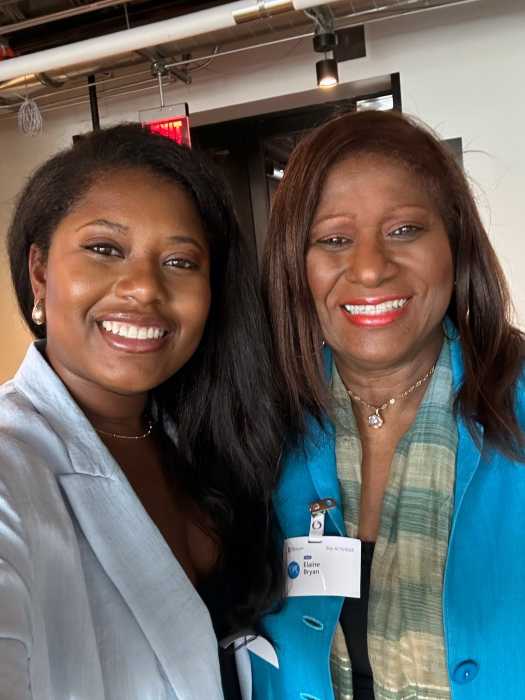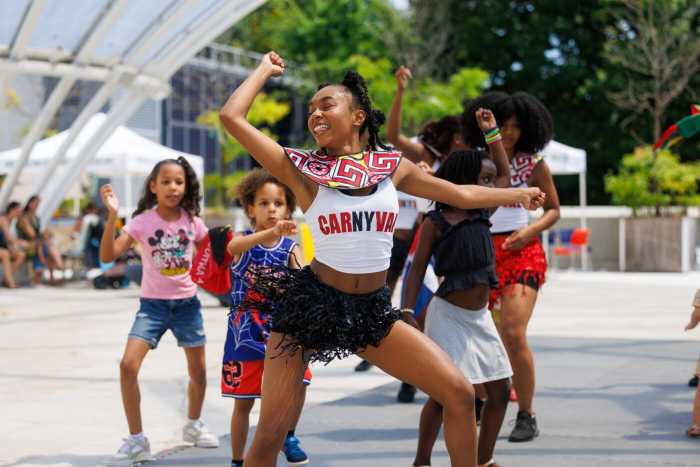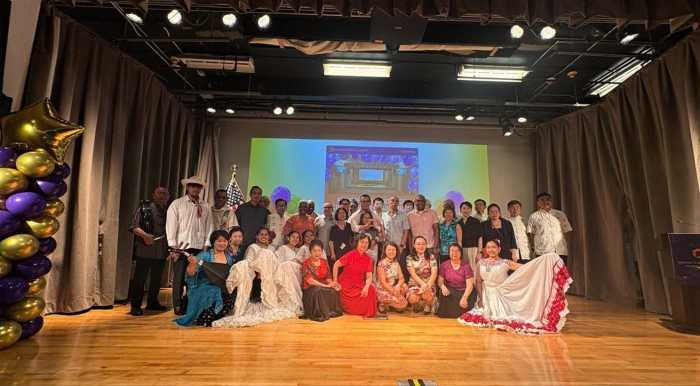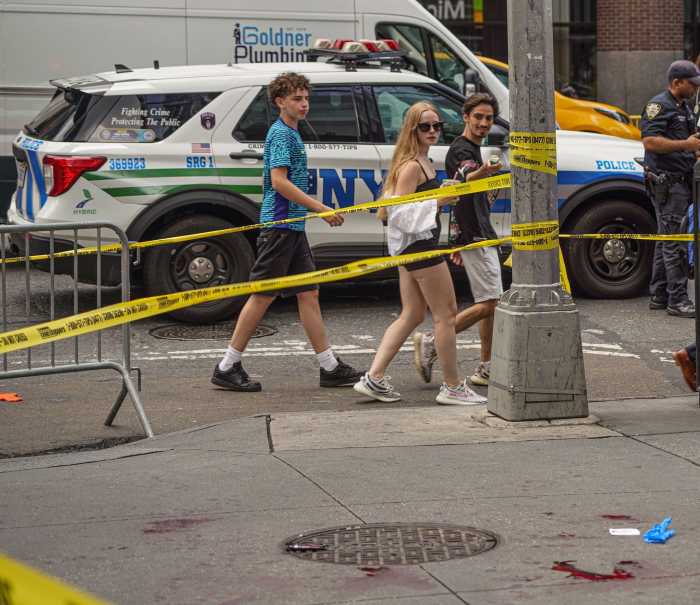The Martin Luther King Jr. Center for Nonviolent Social Change hosted its annual Be Love Day celebration on July 14, where community leaders and activists shared ways for communities to come together to help transform unjust systems.
In the first panel of the celebration, panelists Melanie L. Campbell, Maria Teresa Kumar and Andy Bernstein discussed ways to keep communities engaged in the process of voting, to fight back against several attacks on democracy.
“1-866-OUR-VOTE is a number to put on your refrigerator, and keep that when you go to vote. Being able to know where to go and know your rights is very important as an individual. Then, make sure that no matter what, wherever you go vote, if you know that you’re registered to vote and then that you should be able to vote,” Campbell said.
Campbell is the president and CEO of The National Coalition on Black Civic Participation (NCBCP), as well as a convener of the Black Women’s Roundtable (BWR).
Kumar is the co-founder and president of Voto Latino (English: Latin Vote). “I would also say that we have to reimagine how we talk about the voting day. One of the things that we started doing in 2020 was really telling people that you know that that November that Tuesday was actually the deadline, and really encouraging people to vote early,” she said.
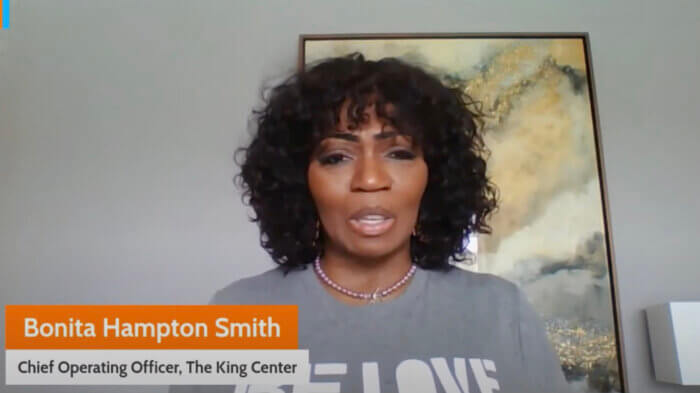
She shared that in 2020, Voto Latino partnered with influencers on Tik Tok and Instagram, as well as fashion company Steve Madden to share voting information, which led more Latinos to vote in that election.
Bernstein, the founder and executive director of HeadCount, shared how important it is to have a dialogue with elected officials.
“Something we did in 2021 was a campaign called Save the Vote, where we went right to the people, we went right to concerts and gave them an opportunity, through a few clicks to send a short email to their State Assembly person and State Senator to just ask what they’re doing about voting rights and kick off that dialogue,” he said.
The next part of the celebration was the premiere of a new episode of The King Center’s podcast, ReThink TKC. This episode, co-hosted by Cameron Friend and Sara Singha, with Rev. Lennox Yearwood Jr., discussed the impact of environmental racism and climate change.
When it comes to combating environmental racism and acknowledging climate change, Harwood Jr. believes better storytelling with clear information makes people understand the times we’re in.
“Let’s come together as humans. we can do it together but this is the moment that we’re in. I believe in people. I believe that when we come together, we can do great things and I also believe that organized people beat organized money every single time. So, I just need us as people to be organized,” he said.
The second panel discussed nonviolence as the way to combat the escalating violence in our world. Panelists Vonnetta L. West, Charles Alphin Sr., as well as Cierra Bobo and Elizabeth Rosner, who are all trainers with The King Center’s Nonviolence 365 program. Alphin shared what nonviolence means.
“First of all, nonviolence is power. Nonviolence is transformative. it is not the opposite of violence, it’s the Cure. it’s a way of thinking, because you’re thinking dictates your actions and then your thinking in the conflicts, you’re not trying to win or violate the humanity of another person but humanity is always respected,” he stated.
The last panel, with panelists Lisa Rice, Rev. Dr. Liz Theoharis and Stephen Menendian, focused on ending the housing crisis. Dismantling the unjust systems, according to Rice, “would look like the Golden Rule at play in the housing context: the same kind of quality of housing and community that I want for my family, I want for your family.”
“I think if you challenge people from a love-centered perspective, and you demand that people respect your humanity, and your right to dignity as a human being, we can consistently move this nation and world closer to where it needs to be,” Rice added.





